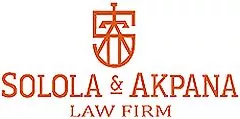The Lagos State Governor, Governor Akinwunmi Ambode recently signed the Lagos State Electric Power Sector Reform Bill into Law (the Law) making Lagos State the first state in Nigeria to enact a Power Sector Reform Law. The main objective of the Law which seeks to give legal backing to the Embedded Power Scheme (launched by the state government in 2017) is to improve electricity supply, power generation and distribution through the Embedded Power Scheme and the enforcement of Consumer Rights and Obligations.
Some of the key highlights of the Law include:
- Lagos State Electricity Board: Section 5 of the Law, establishes the Lagos State Electricity Board (the Board) as the implementing authority for the Embedded Power Scheme. The Board is charged with the responsibility to amongst others ensure efficient and uninterrupted electricity generation, liaise and cooperate with the Nigerian Electricity Regulatory Commission (NERC) and other relevant ministries and agencies for the speedy disposition of projects under the Embedded Power Scheme, promote and create an enabling environment and framework to support embedded and rural electricity projects within the State and provide such support as the Board deems fit to aid the Embedded Power Providers in obtaining all the necessary licenses, permits and approvals as may be needed to perform its objectives, collaborate with Distribution Companies to pre-qualify Embedded Power Providers under the Embedded Power Scheme and Facilitate the identification and designation of areas of the State for deployment of power generated by the Embedded Power Providers
- Embedded Power Stabilization Fund: Subject to the approval of the NERC, a sum not exceeding two percent (2%) shall be added to the tariff payable by the customers of the Embedded Power Scheme based on the kilowatts of power consumed. The applicable sum is to be paid into a designated bank account to be managed by a Fund Manager appointed by the Board which shall be utilized to meet the administrative expenses of carrying out the Embedded Power Programme, defray unrecoverable technical and commercial losses occurring from generation and distribution activities and write off bad and unrecoverable debts by consumers of power. The Governor may every five (5) years vary the percentage that may be added to the tariffs payable by the end users of the Embedded Power Scheme.
- Lagos State Embedded Power Council: To ensure stakeholder collaboration and support, the Law establishes the Lagos State Embedded Power Council (the Council) which comprises representatives of major stakeholders in the industry including the Board, Lagos State Ministry of Energy and Natural Resources, Nigerian Labour Congress, Trade Union Congress, Nigerian Employers Consultative Association and Lagos State Electricity Consumers Association. The Council is charged with the responsibility and obligation to advise the State Government on questions relating to any aspect of electric power referred by the State, provide input in the determination of end-user tariffs to ensure cost reflective tariffs for embedded power and liaise with stakeholders on issues relating to power in the state. Additionally, the Council shall also serve as a forum for addressing consumer complaints subject to NERC Forum Regulations.
- Offences and Penalties: In order to curb the increasing rate of electricity theft and vandalism, the Law criminalises meter tampering, destruction of electricity infrastructure, destruction of electricity transmission, receiving stolen electric lines, installations, equipment or infrastructure. The Law establishes a Power Task Force (the Task Force) which is vested with the power to arrest offenders of the Law, enter, inspect and search premises in which an authorised officer of the Task Force has reason to believe that electricity is being or likely to be used unlawfully. To validate the search by officers of the Task Force, the Law provides that the provisions of Part II of the Administration of Criminal Justice (Repeal and Re-enactment) Law, Ch A3, Laws of Lagos State shall apply with respect to searches and seizures under the law. Furthermore, for speedy dispensation of cases, the Law vests jurisdiction to try offences in Special Courts (away from the slow system under the regular courts).
- Whistle Blowing: The Law provides incentives by way of payment of a monetary reward of a minimum of N10,000 (Ten Thousand Naira) as may be fixed by the licensee to reward persons who report to the licensee or the Nigerian Police or other law enforcement authorities any act which constitutes a violation of this Law
Conclusion:
The enactment of the Law in no small measure demonstrates the leadership of Lagos State in the development of ground-breaking policies aimed at attracting investment. We anticipate that other States will follow suit.
It is expected that investors would take advantage of the opportunities presented by the Law in the power sector as the Law provides a lucrative avenue for power sector investors to improve their footprint in the Nigerian space, diversify their portfolio away from the uncertainties and inadequacies of the national grid and tap into the potential goldmine that the embedded power generation market has to offer.
The content of this article is intended to provide a general guide to the subject matter. Specialist advice should be sought about your specific circumstances.
[View Source]

